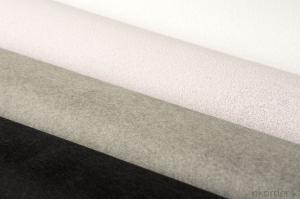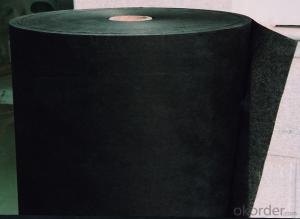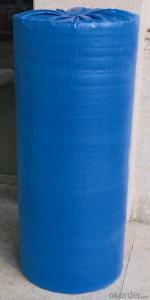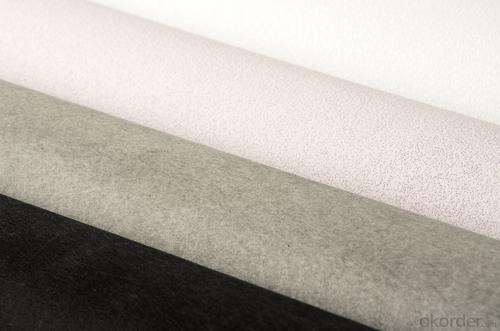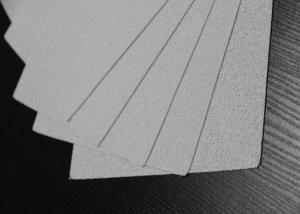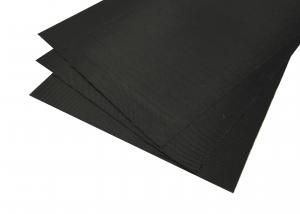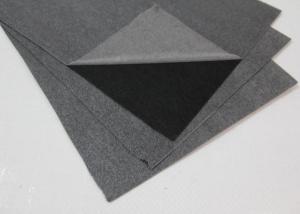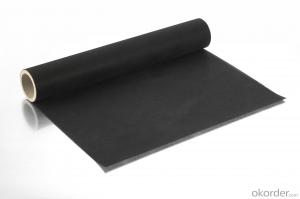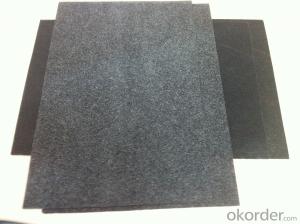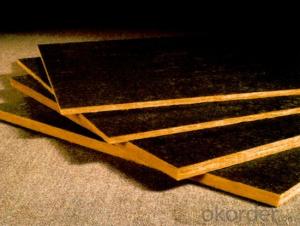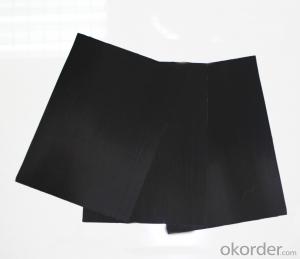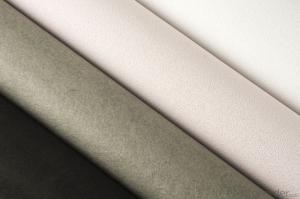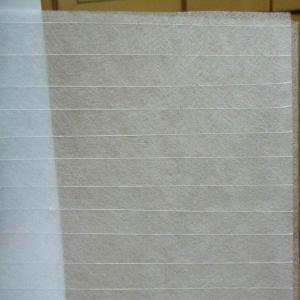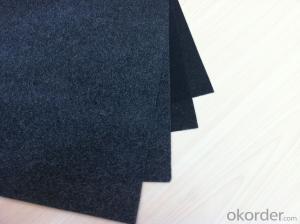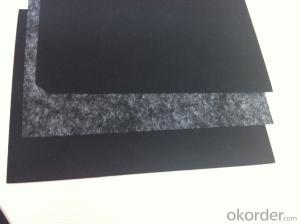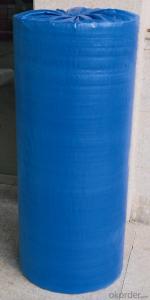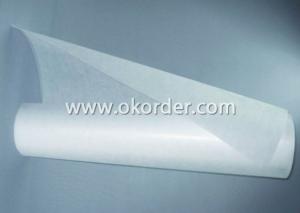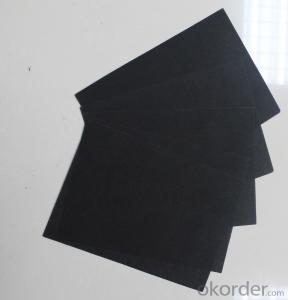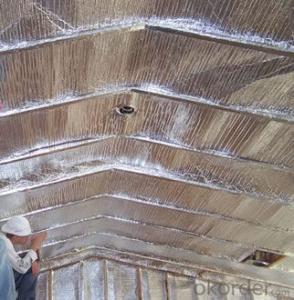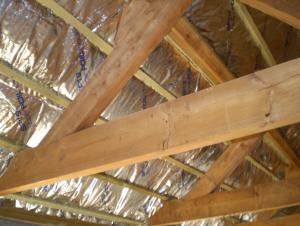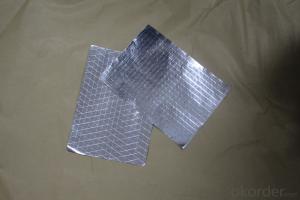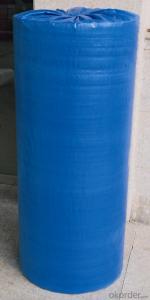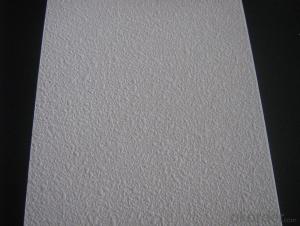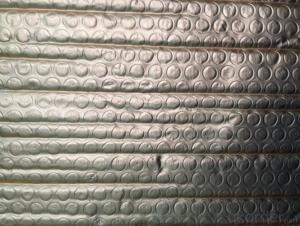Fiberglass Facing Reinforcement Tissue for Roofing Acoustic-65C
- Loading Port:
- Shanghai
- Payment Terms:
- TT OR LC
- Min Order Qty:
- 500 m²
- Supply Capability:
- 100000 m²/month
OKorder Service Pledge
OKorder Financial Service
You Might Also Like
Specification
Introduction of Fiberglass Tissue
Fiberglass Tissue is a kind of facing, which is made of by the white fiberglass tissue, and special production process.
Application of Fiberglass Tissue
Our black tissue are mainly used as facing for glass wool insulation, rockwool, mineral wool etc. Also fiberglass tissue facing is used under roof decking, under attic rafters, over existing attic thermal insulation, in floors, walls and crawl spaces, and in industrial and commercial buildings to block radiant heat coming into house through the roof during the summer and retain indoor heat generated during in winter
Advantage of Fiberglass Tissue
Light weight
• High manufacturing accuracy
• High strength
• Small inertia resistance
• Strong heat dissipation ability
• Good visual effect
• High reflective insulation
• Heat resistant, water proof, stable at high temperature;
• Environmentally friendly, no smell and not-toxic;
• Smooth and clear surface;
Packing of Fiberglass Tissue
1. Waterproof paper then PVC shrinking Film
2. Water-Proof film only
3. Woven cloth
4. Kraft paper or Water Proof Film then Metal/wooden pallet
5. (Also as your request. )
Pictures of Fiberglass Tissue
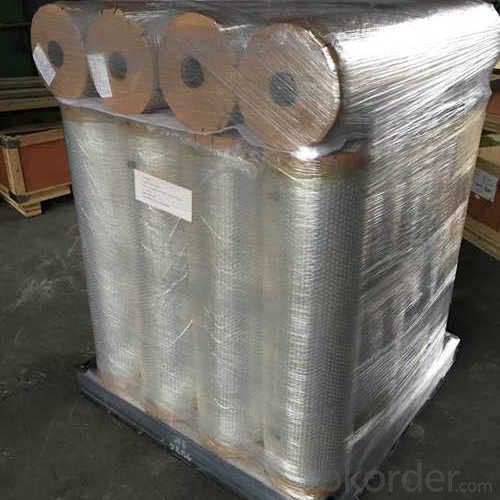
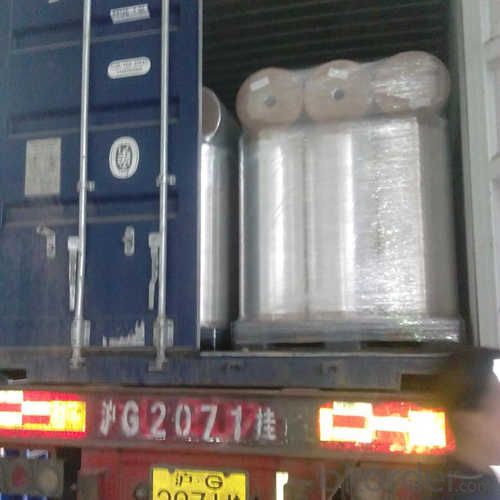
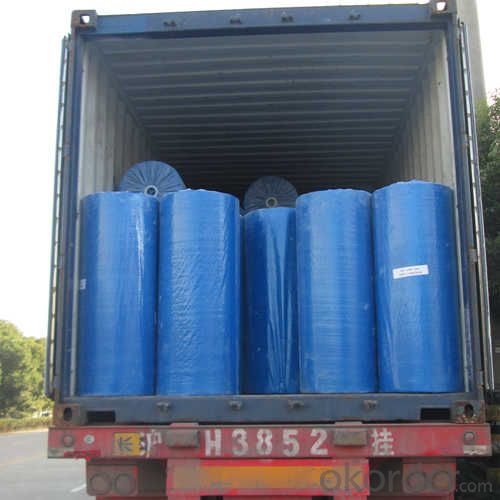
Specification of Fiberglass Tissue
Specification | ||
ITEM | UNIT | VALUE |
Type | C | |
Weight | g/m2 | 65±5 |
Thickness | mm | 0.40 |
Tensile Strength MD | n/125px | ≥130 |
Tensile Strength XD | n/125px | ≥90 |
Fiber Diameter | µ | 9 |
Fire Resistant Property | B1 | |
FAQ
We have organized several common questions for our clients,may help you sincerely:
1. What is the storage condition?
The Aluminum Foil Facing should be stored at room temperature and kept from wet and heat source.
2. How to guarantee the quality of the products?
We have established the international advanced quality management system,every link from raw material to final product we have strict quality test;We resolutely put an end to unqualified products flowing into the market. At the same time, we will provide necessary follow-up service assurance.
3. How long can we receive the product after purchase?
In the purchase of product within four working days, we will arrange the factory delivery as soon as possible. The specific time of receiving is related to the state and position of customers. Commonly 7 to 10 working days can be served.
- Q: This question asks for the cost of black fiberglass tissue.
- <p>The cost of black fiberglass tissue can vary significantly based on factors such as the quality, quantity, and location. As of my last update, prices for fiberglass tissue can range from a few dollars per square meter for lower quality to over $100 per square meter for high-quality materials. It's best to check with local suppliers or online marketplaces for the most current pricing as it can fluctuate due to market conditions and availability.</p>
- Q: What is the texture or appearance of the surface of black fiberglass tissue?
- <p>The surface finish of black fiberglass tissue is typically smooth and matte. It is characterized by a uniform, non-reflective appearance with a slight texture that is often associated with the woven nature of the fiberglass. This finish can vary slightly depending on the specific manufacturing process and the intended application of the fiberglass tissue.</p>
- Q: This question asks if there is any difference between black fiberglass tissues that are domestically produced and those that are imported.
- <p>Yes, there can be differences between domestic and imported black fiberglass tissues. These differences may include quality standards, manufacturing processes, material composition, and cost. Domestic products are often more readily available and may be subject to local regulations and standards, while imported products might have different certifications or comply with international standards. Additionally, the cost can vary due to factors like transportation, import duties, and market demand. It's important to consider the specific application and requirements when choosing between domestic and imported black fiberglass tissues.</p>
- Q: What kind of black fiberglass tissue is recommended for use in cold weather conditions?
- <p>Yes, there is a specific type of black fiberglass tissue designed for use in cold climates. This type of fiberglass is often referred to as 'weather-resistant' or 'cold-resistant fiberglass.' It is engineered to maintain its strength and flexibility in low temperatures, preventing brittleness and breakage. This special formulation is crucial for applications where the material will be exposed to freezing temperatures and harsh weather conditions, ensuring durability and longevity.</p>
- Q: Is it possible to utilize black fiberglass tissue as a flooring material in high-rise constructions?
- <p>Yes, black fiberglass tissue can be used for flooring in high-rise buildings. It is known for its high strength, durability, and resistance to various environmental factors. Fiberglass tissue is often used in composite materials and can be combined with other materials to create a strong and stable flooring solution. However, it's crucial to ensure that the specific type of fiberglass tissue meets the necessary safety standards and building codes for high-rise construction, as well as to consider its fire resistance and load-bearing capabilities.</p>
- Q: Is it possible to use black fiberglass tissue as a material for flooring?
- <p>Yes, black fiberglass tissue can be used for flooring. It is often used in commercial and industrial settings due to its durability, resistance to chemicals, and ability to withstand heavy traffic. Fiberglass tissue is a type of composite material that can be combined with resins to create a strong and stable flooring surface. However, it is important to ensure that the fiberglass tissue is properly treated and combined with the right resins to avoid any health or safety concerns.</p>
- Q: What are the most effective steps to adhere a black fiberglass tape to a wall or ceiling?
- <p>The best way to install a piece of black fiberglass tape on a wall or ceiling involves preparing the surface, applying the tape, and securing it properly. First, clean the area thoroughly to remove dust and debris. Then, cut the fiberglass tape to the desired length. Apply a high-quality adhesive specifically designed for fiberglass to the back of the tape. Press the tape firmly onto the surface, starting from one end and smoothing it out to remove any air bubbles. Use a putty knife or your fingers to press firmly and evenly. Let the adhesive dry according to the manufacturer's instructions before handling or applying any weight to the tape.</p>
- Q: This question asks for the proper handling procedures for glass fiber paper during transportation to ensure safety and prevent damage.
- <p>When handling glass fiber paper during transportation, it's crucial to follow safety protocols to prevent damage and protect personnel. The paper should be stored in dry, well-ventilated areas, away from direct sunlight and extreme temperatures. Use gloves and masks to avoid skin and respiratory irritation from the fibers. Load the material carefully to avoid tearing or crushing, and ensure that it is secured to prevent shifting during transit. Use appropriate packaging to protect against moisture and physical damage. Always follow the manufacturer's guidelines and local regulations for the safe transportation of hazardous materials.</p>
- Q: Is it possible to utilize black fiberglass tissue as a material for soundproofing purposes?
- <p>Yes, black fiberglass tissue can be used for soundproofing materials. It is known for its excellent sound absorption properties due to its porous structure, which allows it to trap and dampen sound waves. Fiberglass is also resistant to heat and moisture, making it a durable choice for various applications. However, it's important to note that while it can help reduce noise, it may not provide complete soundproofing. Proper installation and additional layers or materials may be necessary to achieve the desired level of sound reduction.</p>
- Q: This question asks for methods to determine the cleanliness and dryness of black fiberglass tissue.
- <p>To check if your black fiberglass tissue is clean and dry, visually inspect it for any visible dirt, dust, or debris. Clean tissue should appear free of any foreign particles. To ensure it's dry, you can gently touch the surface; it should feel dry to the touch without any dampness. Additionally, you can use a moisture meter to check for any residual moisture. If the tissue is used in a construction or repair context, it's also important to ensure that no adhesive residue or chemicals remain on the surface that could affect the quality of your work.</p>
Send your message to us
Fiberglass Facing Reinforcement Tissue for Roofing Acoustic-65C
- Loading Port:
- Shanghai
- Payment Terms:
- TT OR LC
- Min Order Qty:
- 500 m²
- Supply Capability:
- 100000 m²/month
OKorder Service Pledge
OKorder Financial Service
Similar products
Hot products
Hot Searches
Related keywords
